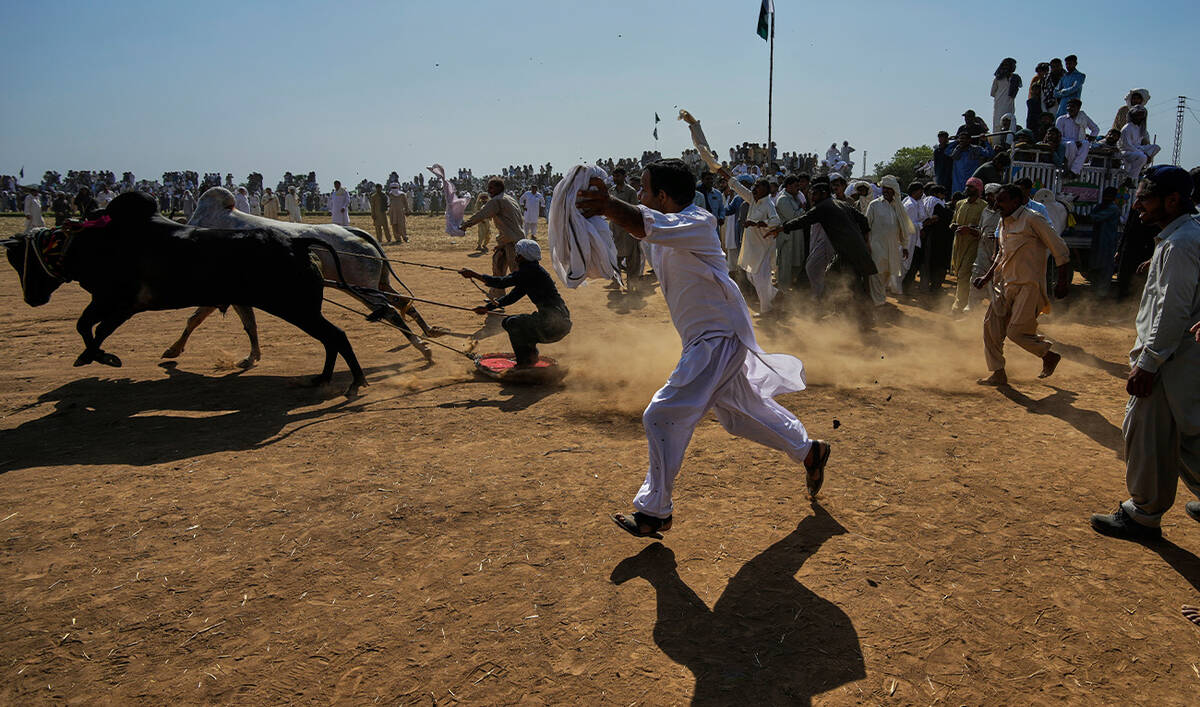KARACHI: The government has approved setting up the Pakistan Digital Assets Authority (PDAA) to regulate blockchain-based financial infrastructure, the finance ministry said on Wednesday, as the country moves to adopt a strategy to regulate and accelerate the growth of its virtual assets economy.
Pakistan set up a national crypto council (PCC) in March to create a legal framework for cryptocurrency trading in a bid to lure international investment. One of the world’s most powerful people in crypto, co-founder and former CEO of Binance Changpeng Zhao, was subsequently appointed as a strategic adviser to the PCC.
Cryptocurrencies including bitcoin are not officially regulated in Pakistan but are also not illegal or banned. As of Jan. 16, 2021, the State Bank of Pakistan has not authorized any individuals or organizations to carry out the sale, purchase, exchange, and investment of virtual currencies, coins, and tokens.
Last month, Pakistan introduced its first-ever policy framework, created by a special government group under the Anti-Money Laundering (AML) and Counter Terrorism Financing (CTF) authority, to set rules for how digital money like cryptocurrencies and the companies that deal in it should operate in Pakistan. The policy has been formulated to align with compliance and financial integrity guidelines of the global Financial Action Task Force (FATF).
“The aim is to ensure FATF-compliant innovation, economic inclusion, and responsible adoption of digital assets,” the finance ministry said, announcing the approval of the Pakistan Digital Assets Authority.
Pakistan is experiencing a surge in the adoption of digital assets, driven by a growing tech-savvy population and increasing government support for blockchain technology.
“Pakistan must regulate not just to catch up but to lead. With the PDAA, we are creating a future-ready framework that protects consumers, invites global investment, and puts Pakistan at the forefront of financial innovation,” the finance ministry statement said, quoting finance minister, Muhammad Aurangzeb, who is also the chairman of the Pakistan Crypto Council.
The PDAA will serve as a specialized regulatory body with a mandate to oversee licensing, compliance, and innovation within the digital asset ecosystem. It will regulate exchanges, custodians, wallets, tokenized platforms, stablecoins, and DeFi applications, all under a single framework.
“This strategic decision aligns Pakistan with other forward-thinking economies such as the UAE, Japan, Singapore, and Hong Kong, all of which have established digital asset regulators to foster innovation while ensuring compliance with global financial norms,” the finance ministry said.
The PDAA is expected to regulate an over $25 billion informal crypto market, enable tokenization of national assets and government debt, provide legal clarity to global and local investors, facilitate monetization of Pakistan’s surplus electricity through regulated bitcoin mining and empower young people and startups to build blockchain-based solutions at scale.
“This is not just about crypto,” Bin Saqib, CEO of Pakistan Crypto Council, said.
“It’s about rewriting our financial future, expanding access, and creating new export channels through tokenization, digital finance, and Web3 innovation.”
According to Statista, a German online platform that specializes in data gathering and visualization, the projected revenue in the digital assets market in Pakistan is estimated to reach $1.6 billion by 2025 while the number of users is expected to reach 27.10 million users.


















